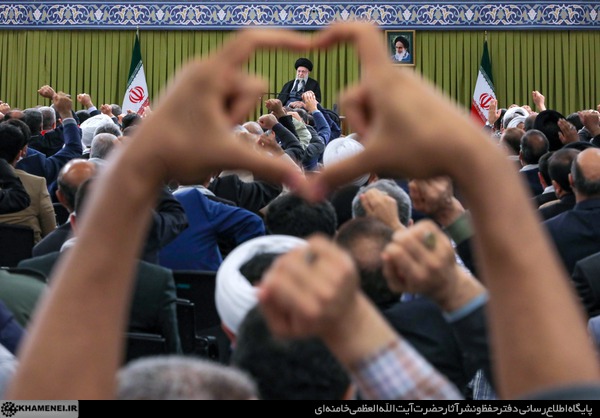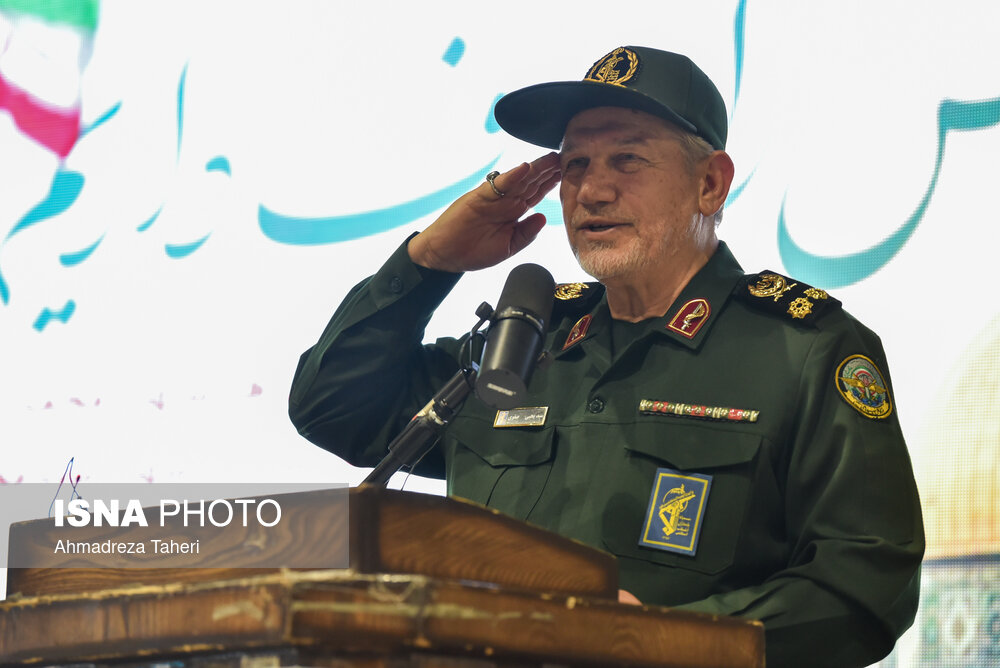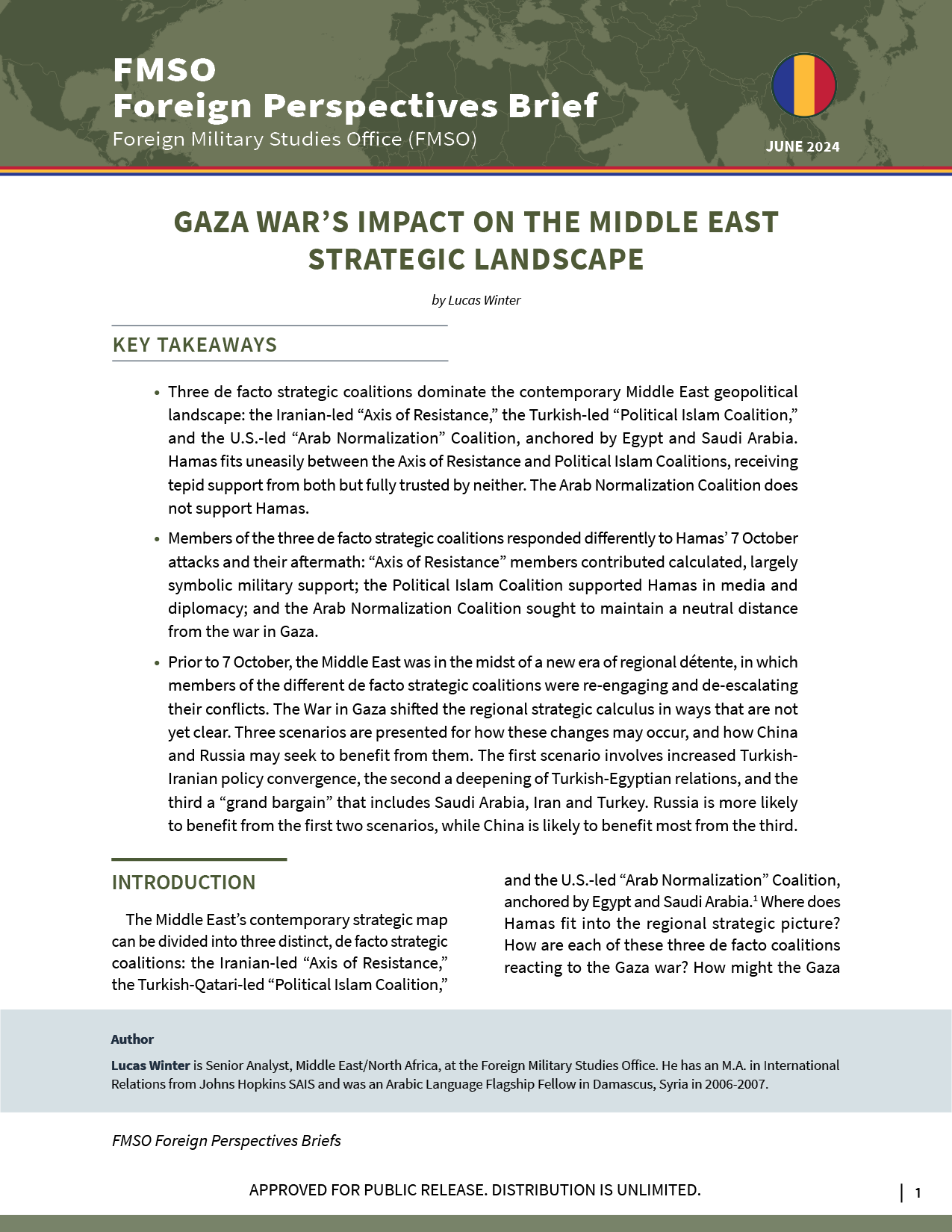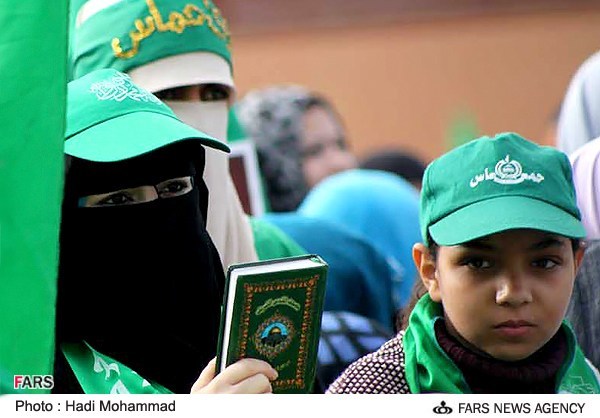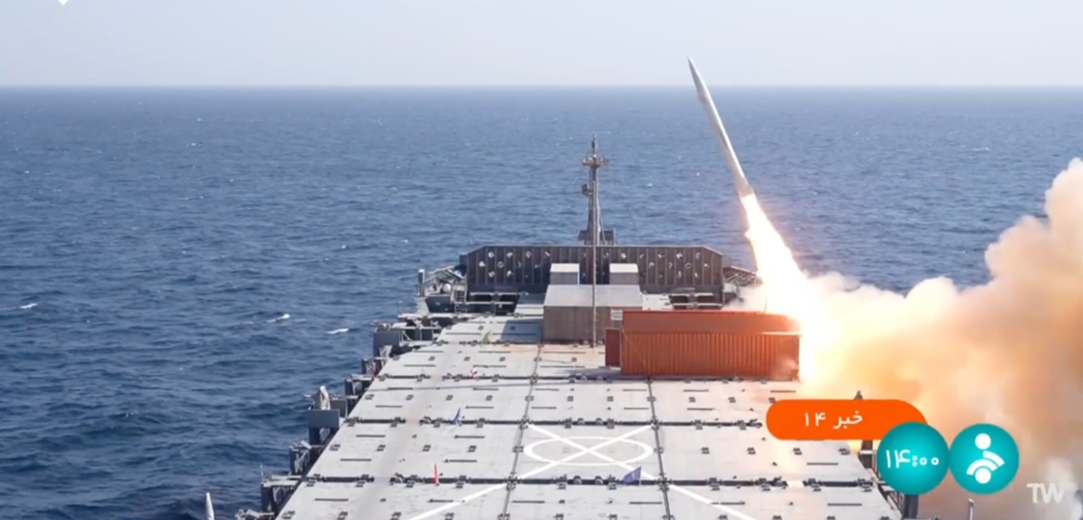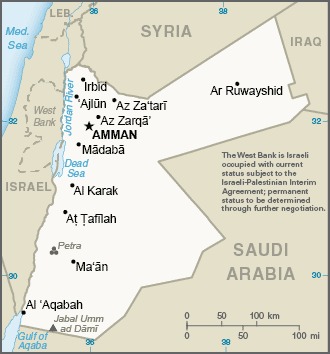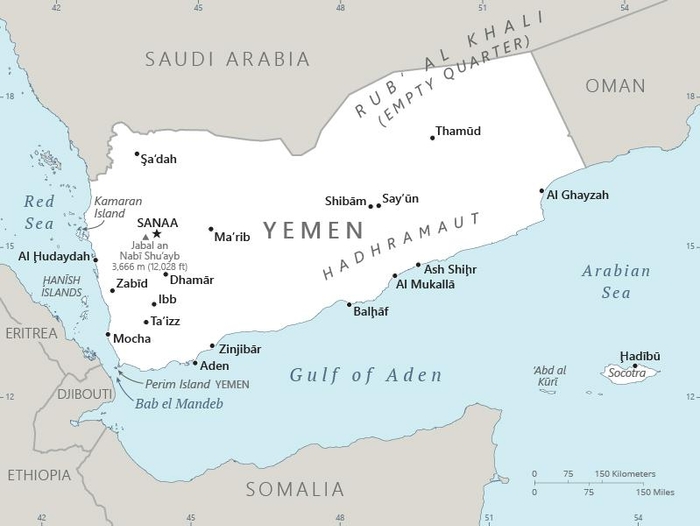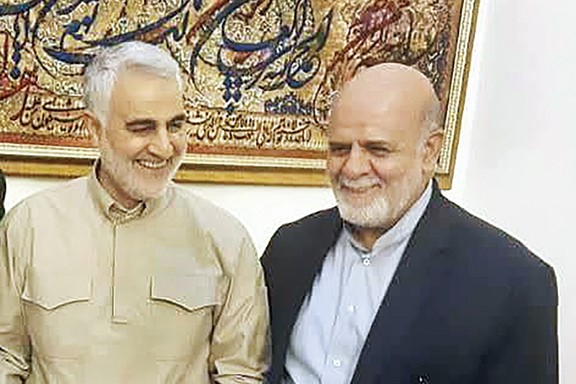, Sayyed Abdolrahim Mousavi.jpg)
“Photo of commander-in-chief of the army (Artesh), Sayyed Abdolrahim Mousavi,” Iranian Online (semi-official news agency affiliated with IRNA), Uknown.
“History is divided into two eras, before and after Operation True Promise.”
Commander-in-Chief of the Iranian Army, Sayyed Abdolrahim Mousavi, recently declared on Islamic Republic of Iran Broadcasting that “just like the resistance of the people of Gaza… Operation True Promise also created a strategic movement in the world.” Mousavi was referring to Iran’s retaliatory attack against Israel on 13 April in response to the Israeli air strike on the Iranian embassy compound in Damascus, Syria that killed senior members of the Islamic Revolution Guard Corps’ (IRGC) Quds Force earlier that month.[i] Mousavi highlighted how the history of the world had been divided before and after Iran’s operation against Israel.[ii] Referencing comments by Supreme Leader Ayatollah Ali Khamenei, Mousavi emphasized that Israel’s destruction would come in the next twenty-five years and was only accelerated by the events of the Hamas attack on 7 October 2023 as well as Operation True Promise, because the latter chipped away at Israel’s security and invigorated political divisions within Israeli society. Of note, Iran’s 13 April attack brought Israel and Iran out of their forty-five-year shadow war, which had been marked by assassinations, cyberattacks, and sabotage. Israel’s subsequent attack on Iran on 19 April restored deterrence for the time being, but Israel’s limited response – destroying an S-300 [RG1] air defense system, demonstrating Israel’s ability to attack and take out Iranian air defense – has given Iran’s clerics the space to continue making bold statements at a time when regional tensions are at an all-time high, and when miscalculation is always a possibility.[iii]
Sources:
“دنیا به قبل و بعد از عملیات «وعده صادق» تقسیم شده است (The world is divided between before and after ‘True Promise’ operation),” Iranians Students’ News Agency (ISNA), 9 May 2024. https://www.isna.ir/news/1403022014474/%D8%AF%D9%86%DB%8C%D8%A7-%D8%A8%D9%87-%D9%82%D8%A8%D9%84-%D9%88-%D8%A8%D8%B9%D8%AF-%D8%A7%D8%B2-%D8%B9%D9%85%D9%84%DB%8C%D8%A7%D8%AA-%D9%88%D8%B9%D8%AF%D9%87-%D8%B5%D8%A7%D8%AF%D9%82-%D8%AA%D9%82%D8%B3%DB%8C%D9%85-%D8%B4%D8%AF%D9%87-%D8%A7%D8%B3%D8%AA
The commander in chief of the army said: History is divided into two eras, before and after Operation True Promise. Just like how al-Aqsa Storm and the resistance of the people of Gaza took the world in a new direction, Operation True Promise also created a strategic movement in the world.
Today (May 9), Commander Sayyed Abdolrahim Mousavi, on the sidelines of awarding the medal of sacrifice presented by the commander-in-chief to the families of martyrs in the presence of journalists, spoke about the achievements of the army in the country: In the constitution it is emphasized that the army is popular. The army is national capital that belongs to the people of Iran, and wherever the country needs, the army will act.
He continued: If there’s a threat in the skies, the army will fulfill its duties. If needed in the sea, it will raise the proud flag of the Islamic Republic. If a conflict arises, they will fulfill their duty. Air defense forces are a broad umbrella in the sky that will constantly defend the country…The commander-in-chief of the army added: As the Supreme Leader predicted, the Zionist regime (Israel) will not see the next 25 years, with al-Aqsa Storm and Operation True Promise this issue will accelerate, and it is likely that the life of this illegitimate regime will end sooner so that the whole world can be saved from this cancerous tumor.
Notes:
[i] “Iran says Israel bombs its embassy in Syria, kills commanders,” Reuters, 1 April 2024. https://www.reuters.com/world/middle-east/israel-bombs-iran-embassy-syria-iranian-commanders-among-dead-2024-04-01/; Matthew Mpoke Bigg, “What We Know About Iran’s Attack on Israel and What Happens Next,” New York Times, 14 April 2024. https://www.nytimes.com/2024/04/14/world/middleeast/iran-israel-drones-attack.html
[ii] Ibid.
[iii] Jon Gambrell, “Satellite photos suggest Iran air defense radar struck in Isfahan during apparent Israeli attack,” Associated Press, 22 April 2024. https://apnews.com/article/iran-israel-s300-radar-hit-isfahan-attack-ce6719d3df8ebf5af08b035427ee215c
Image Information:
Image: “Photo of commander-in-chief of the army (Artesh), Sayyed Abdolrahim Mousavi,” Iranian Online (semi-official news agency affiliated with IRNA), Uknown.
Source:https://inn.ir/news/article/65026/%D8%B3%D8%B1%D9%84%D8%B4%DA%A9%D8%B1-%D9%85%D9%88%D8%B3%D9%88%DB%8C:-%D9%88%D8%B9%D8%AF%D9%87-%D8%B5%D8%A7%D8%AF%D9%82-%D9%86%D8%A7%D8%A8%D9%88%D8%AF%DB%8C-%D8%A7%D8%B3%D8%B1%D8%A7%DB%8C%DB%8C%D9%84-%D8%B1%D8%A7-%D8%B3%D8%B1%D8%B9%D8%AA-%D8%A8%D8%AE%D8%B4%DB%8C%D8%AF
Attribution: CCA-SA 4.0 Intl.

.jpg)
